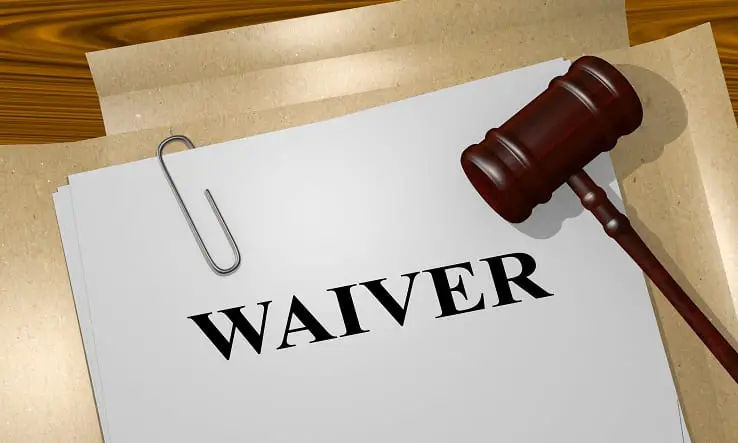Getting a felony waiver to join the army can be a golden ticket to someone who has made mistakes in their past. It can allow them to change their ways and sign up to serve their country, protect their fellow Americans, and travel all around the world in the search of spreading peace or resolving conflict. Although the process for gaining a felony waiver can be a difficult one, there are processes in place to help those in need of a waiver. In this article, we will take a look at the “How to get a Felony Waiver for the Army”.
What is a waiver?

When joining the army, they want to recruit soldiers who fit their four requirements:
- a) Between the ages of 17 and 35
- b) A U. S. citizen or permanent resident who can prove their residency
- c) At least a junior in high school or have a high school diploma or a General Educational Development (GED) diploma, and
- d) Able to pass the medical, the physical, and the moral requirements that the military expects of recruits
These requirements are broadly the same for all branches of the military (including the Navy, the National Guard, the Marine Corps, the Coast Guard, and the Air Force). The need for a waiver may arise in section D – the moral requirements that the military expects of recruits.
The Army expects all soldiers to have good, moral characters. Now, this isn’t a very helpful requirement as it’s not very specific – how do I know if I am of good moral character?
The judgment of a person’s character is generally made off their criminal record, which is assessed during an in-depth background check that is carried out on any applicant after they have handed in their enrollment forms.
This assessment is carried out to check the number of non-serious offences (such as speeding or parking violations), misdemeanors, and felonies that an individual has on their criminal record. Additional checks may also be made into credit history checks. This is to ensure that the applicant is not in the business of defrauding people of their money or has other unexplained income.
Read Also: Criminal Record Waiver Military
When would someone need a waiver to join the army?

There are a number of situations that mean that someone may require a waiver, including for applicants who do not have a misdemeanor or felony charge against their name. These situations can be broken down into four main groups:
- Five or more minor non-traffic charges
If you have a history of committing minor offences, then you may be required to apply for a waiver. If you have committed a number of these offenses (such as disorderly conduct, drunken brawling, or shoplifting goods worth less than $50), then you may need to apply for a waiver. Due to the low level of these crimes, this waiver can be given out by a low-level officer.
The Recruiting Squadron Commander themselves may even be able to recommend and approve your waiver after having met you at a recruitment drive. Showing that you have broken your history of rule-breaking and rebellious behavior is important, however – do not expect to be granted a waiver if you cannot show that you have grown out of it.
- Two or more misdemeanor charges
If you have committed two or more misdemeanor crimes in your past, you will need to apply for a waiver. Depending on how serious your charges are and how long ago you were convicted, there is a chance that you will be rejected from a waiver.
However, much like the previous list of charges, if you can show that you have changed your ways and are trying to make a fresh start in your life, then the Recruiting Squadron Commander may grant you a waiver.
- A combination of four or more minor non-traffic or misdemeanor charges
This is a combination of the previous points. For example, if you have committed one misdemeanor crime and 5 non-traffic minor crimes, you will need to apply for a waiver. If you believe that you would pass either category 1 or 2, there is no reason to believe that you wouldn’t pass this section.
Again, depending on the severity of your crimes and the length of time you committed these crimes, you may be granted a waiver by the Recruiting Squadron Commander.
- One serious criminal misconduct charge
Note here that the Army (or the Military in general) does not use the word felony. Felonies are included in what they consider serious criminal misconduct charges, but there are a number of other crimes that fall into this bracket that is not covered by felony charges.
The most obvious one would be a dishonorable discharge, but a number of civilian crimes can also fall under this category. If you have one felony charge on your record (or any other crime that the Army considers to be worthy of a Category 4 rating), you will need to apply for a waiver to enroll and serve your country. Generally, these waiver requests must be passed up the chain of command.
This will mean that the request may take longer to process. Also note that even if you have had the crime expunged, dismissed, or pardoned, you may still need a waiver to be issued. Thankfully, these actions will help you in being granted a waiver and showing that you are a functional member of society who can be trusted just as much as anyone else.
Can I get a waiver for a felony charge?

In theory, yes. They are rare, however. Depending on the nature of your crime and when you committed it, you will face an uphill battle to enlist. There are useful tips and actions that you can take to improve your chances, however:
- Honesty
You’re a felon. People already think that you are untrustworthy, whether that is right or wrong. Do not give them further excuses to say that you are not a moral member of society by lying about your criminal background. The military carries out background checks for every applicant to ensure that they are of good, moral character and have an acceptable history.
If you are honest, the most that they can do is say no. If you lie, you will be disqualified from the recruiting process, possibly disqualified entirely for a number of years due to lying, and may even face criminal charges for fraud depending on the restrictions of your conviction. Do not lie to the military. They will find out.
If there is a huge recruitment drive due to a lack of soldiers, your chances may increase to be granted a waiver – even if you do not get a waiver for the Army, it does not mean that you would be turned down for the Navy or the National Guard necessarily.
What felonies instantly disqualify someone from getting a waiver?
There are a number of felony charges which will mean that someone cannot enlist in the Army ever. These are almost all associated with physical violence, gross misconduct, and dishonesty. However, if you cannot win back your rights to bear arms, that will also instantly disqualify you – how do you plan to defend your country and ensure the safety of your fellow Americans without a firearm?
The list below is not an exhaustive list, but it is an indication of the types of crimes that may mean someone will be instantly disqualified from gaining a waiver.
Violent crimes (with or without a weapon)
If you have committed a felony which involved inflicting or threatening to inflict serious bodily harm to another individual, you will probably be ineligible to gain a waiver. The Army strives to uphold the values of respect, honor, and integrity. If you have violently assaulted or even murdered another individual, it shows that you do not have the basic respect for human life or the integrity to control your temper.
These violent crimes disqualify applicants in order to protect those that would be around soldiers on duty. Additionally, if you have committed one of these crimes, it is unlikely that you will be granted your right to bear arms back. Without this, you simply cannot be a soldier.
If you have been found in possession of child pornography, have committed child sexual abuse, or have been found guilty of hate crimes, you will be disqualified from joining the Army. These are gross crimes against your fellow man and do not fit with the values of the U. S. Military. You will be unable to claim a waiver for these charges.
If you have been found guilty of treason, you will not be granted a waiver ever. Loyalty and selfless service to your country are two key principles for gaining employment and serving in the Army. A traitor is not someone who fits the specification, so you will be unable to claim a waiver.
What else could disqualify someone from getting a waiver?
As well as the above felonies and dishonorable discharge, an individual cannot enroll with the Army or claim a waiver in a number of other special circumstances. This could include being on parole or probation for a crime previously committed, if you are currently awaiting a trial, if you have links to large scale drug trades but have not been found guilty, or any other reason that the Army would consider you undesirable on the grounds of lacking a “good, moral character”.
If you believe that you possess a good, moral character but fear that you may have to undergo the waiver process, ask respected members of society to write you letters of recommendation. This will help your case (especially if you can show a large number of letters) for being a reformed individual who has taken it upon themselves to reform their lives and move on from their criminal past.

Hello. I am 29 years old. My record is as follows
2016- Attempted Uttering
2016- Forging of bank notes
I was at living at a homeless shelter in Norfolk, VA and I was in dire need of a job or some quick cash. I honestly did not know what I was getting myself into until a bank security guard told me to “just tell me the truth and nothing will happen to you” so out of fear I did. Next thing you know I am doing time. I spent a total of 4 months in VA Beach. Until they let me out since legally they couldn’t hold me anymore. I was wondering if I could join Army or even Nat Guard but I don’t know it could be too late for me.